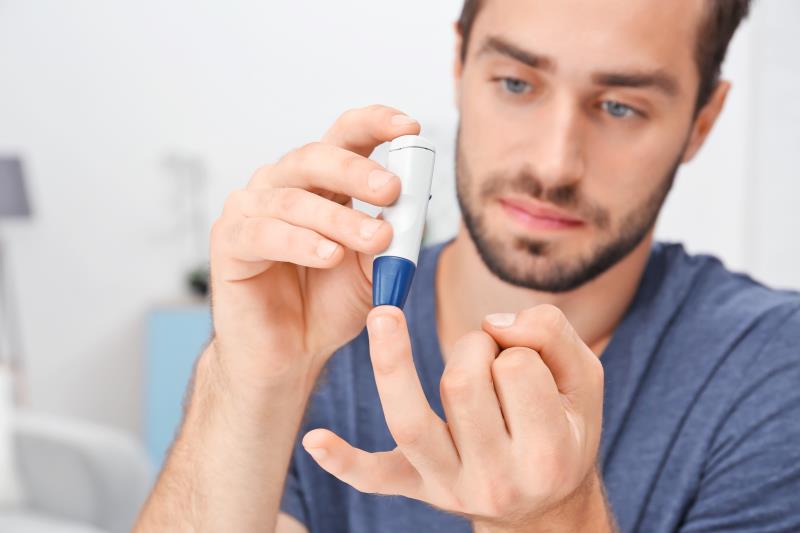
A small retrospective study from China has suggested that COVID-19 progression may be more severe among individuals with diabetes.
“[W]e found that SARS-CoV-2 pneumonia [is more severe among] patients with diabetes than those without … evaluating from organ damage, inflammatory factors, or hypercoagulability, and [is] more likely to progress into a worse prognosis,” said the researchers.
“[D]iabetes could be considered a risk factor for the outcome of SARS-CoV-2 pneumonia, and more intensive attention should be paid to patients with diabetes, in case of rapid deterioration.”
Participants were 174 individuals with confirmed COVID-19 (median age 59 years, 43.7 percent male) who were admitted to the Wuhan Union Hospital, Wuhan, China, between 10 and 29 February 2020. Patients were followed up until 3 March 2020. Diabetes was present in 21.2 percent of the population.
Compared with patients without diabetes, patients with diabetes had higher neutrophil (4.1 vs 2.5 x109/L; p<0.01) and D-dimer levels (1.15 vs 0.54 μg/L; p<0.01), and lower lymphocyte (0.86 vs 0.97 x109/L; p=0.04), red blood cell (3.9 vs 4.17 x1012/L; p<0.01), and haemoglobin levels (117 vs 127 g/dL; p<0.01). Patients with diabetes also had higher erythrocyte sedimentation rates (ESR; 67 vs 23 mm/h; p<0.01) and numerically higher C-reactive protein (CRP) levels compared with non-diabetics (32.8 vs 16.3 mg/L; p=0.06).
Exclusion of other non-diabetes comorbidities resulted in a 50-person population, 24 and 26 with and without diabetes, respectively. Compared with non-diabetics, patients with diabetes had higher α-hydroxybutyrate dehydrogenase (HBDH; 181 vs 141.5 U/L; p<0.01), alanine aminotransferase (ALT; 26.5 vs 18.5 U/L; p=0.02), lactic dehydrogenase (LDH; 250.5 vs 186.5 U/L; p=0.01), γ-glutamyltransferase (20 vs 13 U/L; p<0.01), neutrophil (4 vs 2.54 x109/L; p=0.02), CRP (76.4 vs 7.43 mg/L; p<0.01), serum ferritin (764.8 vs 128.9 ng/mL; p<0.01), ESR (76 vs 8 mm/h; p<0.01), IL-6 (13.73 vs 4.13 pg/mL; p<0.01), D-dimer (1.16 vs 0.25 μg/L; p<0.01), and fibrinogen levels (5.01 vs 3.75 g/L; p<0.01).
Patients with diabetes also had lower total protein (60 vs 67.7 mg/L; p<0.01), prealbumin (0.14 vs 0.21 mg/L; p=0.02), albumin (35.4 vs 41.45 mg/L; p<0.01), albumin/globulin (1.4 vs 1.6; p=0.04), lymphocyte (0.59 vs 1.33 x109/L; p<0.01), red blood cell (3.88 vs 4.36 x1012/L; p<0.01), and haemoglobin levels (118 vs 133 g/dL; p<0.01) compared with non-diabetics.
“These data showed that the COVID-19 patients with diabetes are at higher risk of excessive uncontrolled inflammation responses and hypercoagulable state, which may contribute to a poorer prognosis of COVID-19,” said the researchers.
Some of these elevations, such as LDH, HBDH, and ALT also signal myocardium, kidney, and liver injury, which “partially explain why some patients died from multiple organ failure.” The higher levels in diabetics vs nondiabetics suggest greater severity of organ injury in diabetics. Increases in certain inflammation biomarkers hint at the susceptibility of diabetics to an inflammatory storm, which could also impact COVID-19 progression, they noted.
During hospitalization, patients with diabetes had poor glycaemic control evidenced by the increase in insulin dosage and the transfer from medical to insulin therapy following hospitalization.
“[This] shows that the virus has an impact on the patient’s glucose metabolism. Dysregulation of glucose metabolism will aggravate diabetes and … affect the severity of pneumonia, which works as an amplification loop.”
Three patients with diabetes had diabetic complications (12.5 percent), with mortality rate higher among those with vs without complications (66.7 percent vs 9.5 percent; p=0.045).
“Since viral infection may cause sharp fluctuation of blood glucose levels of diabetes patients, which adversely affects the recovery of patients, there is a reason to suspect that diabetes combined with SARS-CoV-2 pneumonia may form a vicious circle, which is detrimental to the prognosis of COVID-19,” noted the researchers.